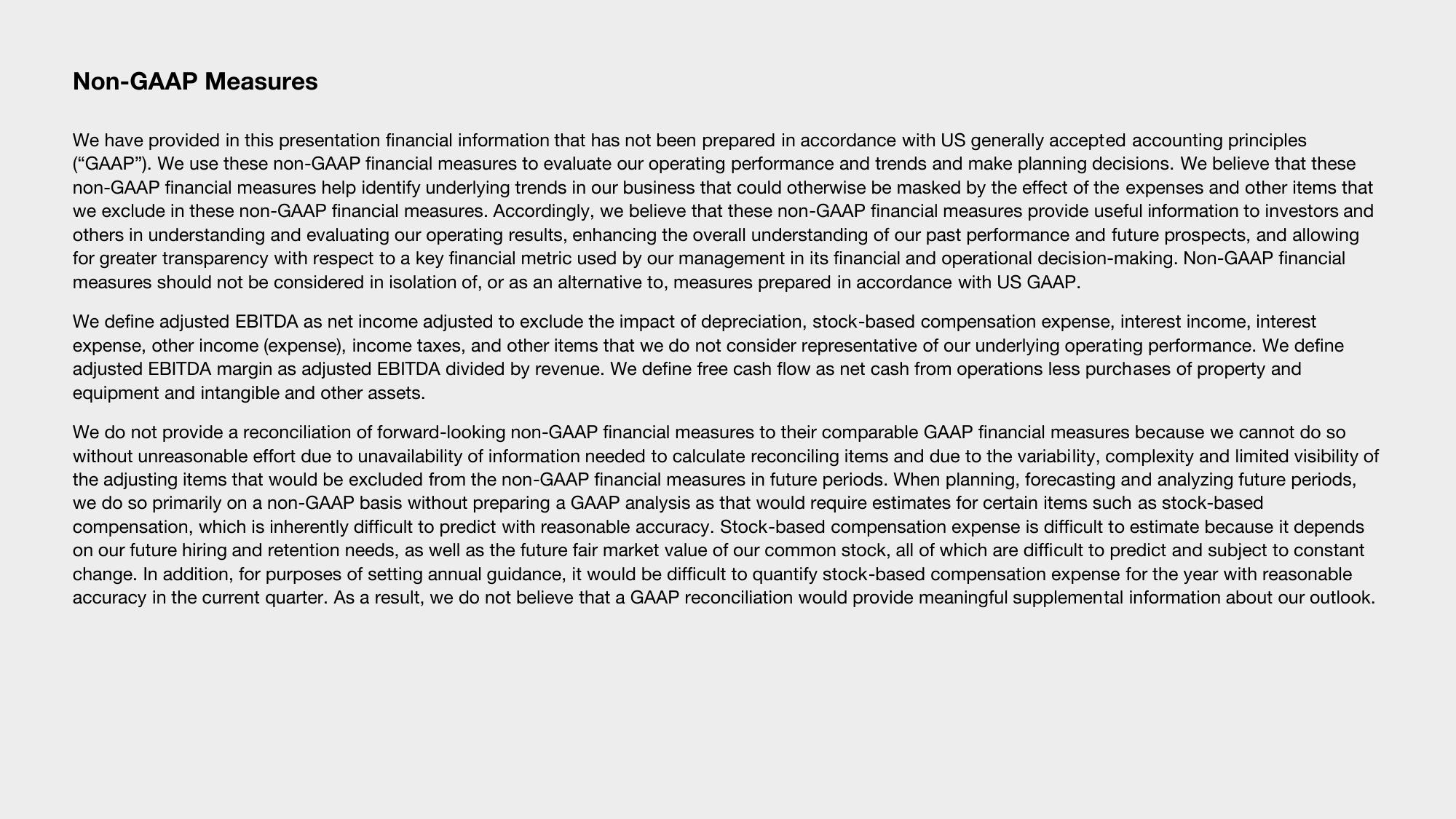Sonos Results Presentation Deck
Non-GAAP Measures
We have provided in this presentation financial information that has not been prepared in accordance with US generally accepted accounting principles
("GAAP"). We use these non-GAAP financial measures to evaluate our operating performance and trends and make planning decisions. We believe that these
non-GAAP financial measures help identify underlying trends in our business that could otherwise be masked by the effect of the expenses and other items that
we exclude in these non-GAAP financial measures. Accordingly, we believe that these non-GAAP financial measures provide useful information to investors and
others in understanding and evaluating our operating results, enhancing the overall understanding of our past performance and future prospects, and allowing
for greater transparency with respect to a key financial metric used by our management in its financial and operational decision-making. Non-GAAP financial
measures should not be considered in isolation of, or as an alternative to, measures prepared in accordance with US GAAP.
We define adjusted EBITDA as net income adjusted to exclude the impact of depreciation, stock-based compensation expense, interest income, interest
expense, other income (expense), income taxes, and other items that we do not consider representative of our underlying operating performance. We define
adjusted EBITDA margin as adjusted EBITDA divided by revenue. We define free cash flow as net cash from operations less purchases of property and
equipment and intangible and other assets.
We do not provide a reconciliation of forward-looking non-GAAP financial measures to their comparable GAAP financial measures because we cannot do so
without unreasonable effort due to unavailability of information needed to calculate reconciling items and due to the variability, complexity and limited visibility of
the adjusting items that would be excluded from the non-GAAP financial measures in future periods. When planning, forecasting and analyzing future periods,
we do so primarily on a non-GAAP basis without preparing a GAAP analysis as that would require estimates for certain items such as stock-based
compensation, which is inherently difficult to predict with reasonable accuracy. Stock-based compensation expense is difficult to estimate because it depends
on our future hiring and retention needs, as well as the future fair market value of our common stock, all of which are difficult to predict and subject to constant
change. In addition, for purposes of setting annual guidance, it would be difficult to quantify stock-based compensation expense for the year with reasonable
accuracy in the current quarter. As a result, we do not believe that a GAAP reconciliation would provide meaningful supplemental information about our outlook.View entire presentation